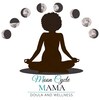|
The American Academy of Pediatrics recently announced that only about half of the
infants in the United States are put to bed in a way that follows the best medical advice. Thanks to increased awareness about safe sleeping practices for babies, cases of Sudden Infant Death Syndrome (SIDS) have fallen by more than 50% in recent years. While progress has been dramatic, there’s still a long way to go. If you’re a new parent, learn how to protect your baby while they slumber. Guarding against SIDS 1. Place your baby on their back. Lying on their back is the safest position for an infant because their breathing won’t be blocked by having their face against the mattress. Put your baby on their back, even if they’re lying down for just a few minutes. 2. Go bare headed. Forget about night caps or hats. It’s best to keep everything away from your baby’s face. 3. Stay cool. Overheating can also contribute to SIDS. A onesie is usually all that your baby needs to wear. 4. Skip the blanket. Covers can come loose and twist around a baby or make them too warm. If you think a blanket is necessary, talk with your doctor about how to swaddle correctly. 5. Clear out the crib. Other than your baby and their mattress, keep everything else out of the crib. That includes pillows, bumpers, and stuffed toys. You want to minimize the risk of your baby choking or being smothered. 6. Breastfeed if possible. In addition to all the other benefits, babies who breastfeed are less likely to experience SIDS. It’s a good practice for you and your baby. 7. Immunize your baby. Immunizations appear to protect babies from SIDS, as well as the other diseases they’re designed for. Follow your pediatrician’s recommendations. However, it’s important to watch for signs of a reaction after any immunization and seek immediate medical treatment for any concerning symptoms. 8. Be careful about sharing beds. While some families believe in sleeping together, studies show it can be risky. Someone in the bed could roll over on your baby. Be especially careful if you’re a heavy sleeper. 9. Sleep in the same room. On the other hand, sleeping in the same room can help to keep your baby out of harm’s way. A crib that attaches to your bed may be the ideal way to stay close. 10. Avoid cigarette smoke. If you’re trying to quit smoking, minimizing the risk of SIDS gives you one more good reason. Try a combination of methods if you need extra help with quitting. 11. Talk with other caregivers. Share these facts about SIDS with everyone who cares for your baby. Get your nanny, babysitter, parents, and in-laws on board. Additional Sleep Suggestions for Babies 1. Create tummy time. Lying on their stomach is beneficial for your baby, as long as they’re awake and you’re right there watching them. While your baby enjoys playing, they’ll also be strengthening their muscles and sharpening their motor skills. You can extend tummy time as they get older. 2. Work towards a consistent sleep schedule. At first, you’ll need to follow your baby’s lead. You can expect to be woken up several times during the night. Starting at about two months of age, you’ll probably find that a regular sleeping schedule is becoming more feasible. 3. Take naps. Take advantage of your baby’s nap times to get some rest for yourself. It’s common for new babies to doze at least four times a day. 4. Ask for help. Being a new parent is a tough job. Take advantage of the experience and assistance of others. Let your family know what you need and seek out the support of other parents. 4. Ask for help. Being a new parent is a tough job. Take advantage of the experience and assistance of others. Let your family know what you need and seek out the support of other parents. Since babies spend more time asleep than awake, it’s up to you to keep them snug and secure while they snooze. Your children will get a head start on growing up healthy, and you’ll sleep better, too, knowing that you’ve taken every precaution against SIDS.
0 Comments
Leave a Reply. |
AuthorKerri Honeywood is a Certified Doula/ Certified Lactation Specialist/ Holistic Healer/ Certified Reiki Master/ that works with Postpartum mothers and others that can benefit from holistic healing & support. She is the mother of five she understands the joys and challenges of motherhood and life in general. Archives
May 2024
Categories |
Search by typing & pressing enter

 RSS Feed
RSS Feed